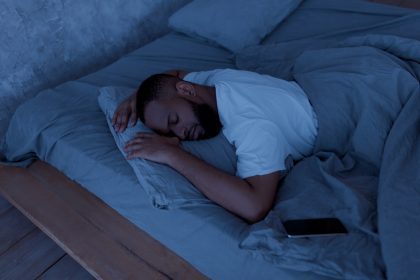Waking up after eight hours of sleep should feel refreshing. Yet, many people open their eyes feeling just as exhausted as when they went to bed. It’s frustrating, confusing and even a little worrying. You followed the rules—went to bed on time, got the recommended hours—but still feel drained.
This phenomenon has an explanation, and it’s more common than you might think. Understanding the real reasons behind this fatigue can change the way you approach rest, health and even your daily routines.
Quality trumps quantity
Most advice focuses on how many hours of sleep you need. But getting eight hours doesn’t guarantee that those hours were good for your body or mind. Poor sleep quality can sabotage your rest, no matter how long you’re in bed.
Sleep happens in stages—light sleep, deep sleep and REM (rapid eye movement) sleep. If you don’t get enough deep or REM sleep, your body misses out on the restorative benefits, even if you technically sleep eight hours. These stages are essential for muscle repair, memory consolidation and emotional processing.
Frequent awakenings, noisy environments or even minor breathing issues can disrupt those sleep stages. You might not remember waking up, but your brain does.
Sleep inertia explained
That groggy feeling you get right after waking up is called sleep inertia. It’s the transition phase between sleep and full alertness. For some, this phase lasts a few minutes. For others, it lingers for hours.
Sleep inertia is particularly intense if you wake up during deep sleep. Your brain needs time to power up, and if interrupted in the wrong stage, it doesn’t respond well. That’s why waking up to an alarm in the middle of a deep sleep cycle can leave you more tired than before.
Disrupted circadian rhythms
Your body runs on a natural clock, known as the circadian rhythm. This internal system tells you when to sleep and wake, when to eat and even when your body heals best.
If your sleep doesn’t align with this rhythm—maybe you’re going to bed too late, waking up too early or sleeping through daylight—it confuses your system. Even if you sleep for eight hours, doing so at the wrong time for your body can lead to sluggishness and fatigue.
Jet lag, shift work or simply staying up late and sleeping in on weekends can throw off this rhythm. Repeated misalignment affects hormone production, temperature regulation and mood, all of which contribute to how you feel in the morning.
Undiagnosed sleep disorders
Some sleep problems are silent, but serious. Conditions like sleep apnea cause momentary pauses in breathing that repeatedly interrupt sleep. Even if you’re unconscious for eight hours, your body keeps waking up to breathe.
Restless legs syndrome, bruxism (teeth grinding) or periodic limb movement disorder also reduce sleep quality without your full awareness. People with these conditions often wake up exhausted, with no memory of the disruptions.
These disorders affect people of all ages and fitness levels. They’re especially dangerous because they remain undiagnosed in many cases. If you consistently feel tired after enough sleep, talking to a doctor or sleep specialist is a smart next step.
Mental load and emotional stress
The body might be at rest, but the mind may not be. High levels of stress, anxiety or emotional trauma don’t just keep people awake—they affect the entire sleep cycle. When the mind is burdened, sleep can become shallow, fragmented or unrestful.
Even when you fall asleep quickly, ongoing mental tension can lead to dreams that are vivid and unsettling. These dreams can leave you mentally exhausted upon waking, as though you’ve run a marathon in your sleep.
Chronic stress also raises cortisol levels. Elevated cortisol at night interferes with deep sleep and contributes to morning fatigue. In this case, sleep becomes a battle the brain cannot win without intentional recovery and mental wellness practices.
Technology’s impact
The blue light from screens suppresses melatonin, the hormone that tells your body it’s time to sleep. Watching TV, scrolling on your phone or using a tablet in bed might push your body into a state of alertness, even if you’re physically tired.
This delay in melatonin production can shift your sleep cycle without you realizing it. As a result, your body doesn’t start its true recovery process when it should, cutting into the depth and quality of your sleep.
Worse, the content we consume—negative news, emotional videos or even tense TV dramas—keeps the brain active. You may be lying in bed for eight hours, but your brain was never given the chance to fully rest.
Diet and hydration factors
What you eat and drink during the day directly impacts how you feel the next morning. Eating late at night, consuming heavy meals or drinking alcohol before bed can disrupt digestion and sleep cycles. These disruptions can fragment your sleep, leading to less time in deep stages.
Dehydration is another underappreciated culprit. Your body uses fluids during the night for muscle repair and brain function. If you go to bed already dehydrated—or become so overnight—you may wake up groggy and stiff, even after a full night’s rest.
Stimulants like caffeine or energy drinks too close to bedtime can also interfere with sleep architecture. Even if you fall asleep, these substances can prevent your brain from reaching the restful stages of the cycle.
Environmental influences
Small disruptions in your sleeping environment can have a massive impact on how rested you feel. Temperature that’s too warm or too cold, poor air quality, uncomfortable mattresses or even subtle noises can repeatedly jolt you out of the deep stages of sleep.
Sleep specialists often recommend optimizing your bedroom like a cave—cool, dark and quiet. Investing in blackout curtains, white noise machines and a supportive mattress can transform your eight hours into something truly restorative.
Addressing persistent fatigue
Solving this issue requires more than just adding an hour to your bedtime. It’s about rebuilding your relationship with sleep from the ground up.
- Track your sleep with apps or journals to understand patterns
- Practice mindfulness, therapy or journaling for mental wellness
- Seek medical advice if you suspect a sleep disorder
- Create a nightly ritual to tell your body it’s time to wind down
- Optimize your sleep environment for comfort and minimal disruption
- Monitor hydration and meal timing, especially in the evening
- Establish a device-free period before bedtime
By treating sleep as a full-body, full-mind experience, you can wake up feeling like yourself again.
If you’ve ever asked yourself why you feel so tired after doing everything right, know that you’re not alone. Sleep is complicated. It’s affected by emotions, routines, environments and unseen conditions. But the good news is that these factors are all within your control once you know what to look for.
A deeper dive into your sleep patterns can uncover the reasons behind your fatigue—and more importantly, guide you toward mornings that feel truly energized.
















